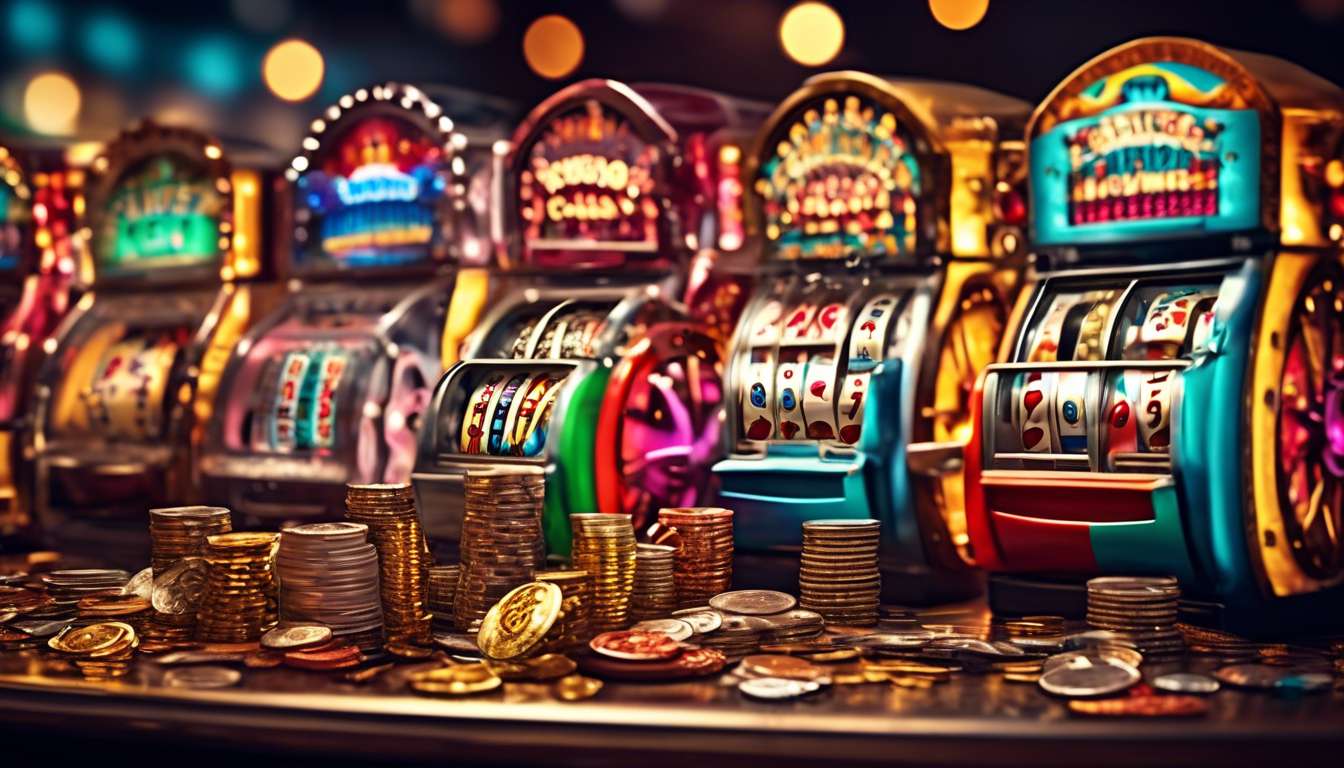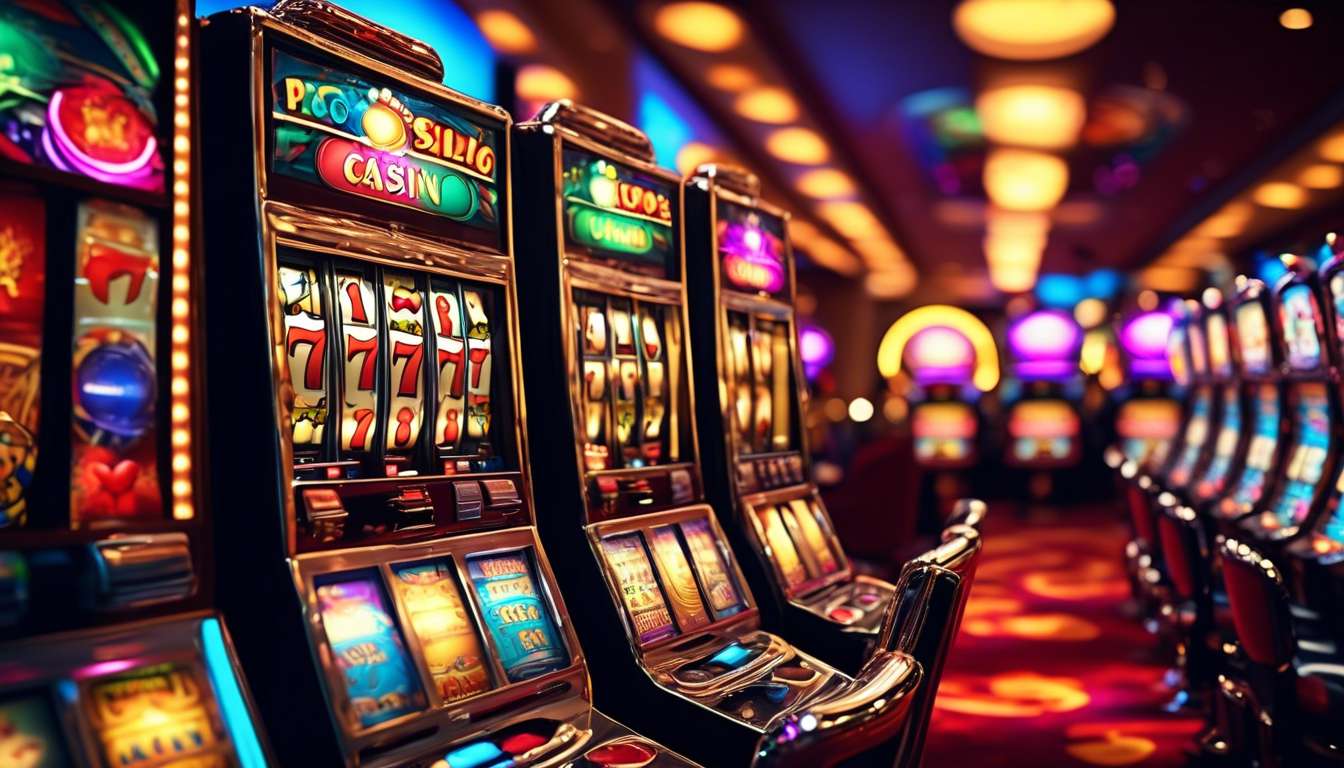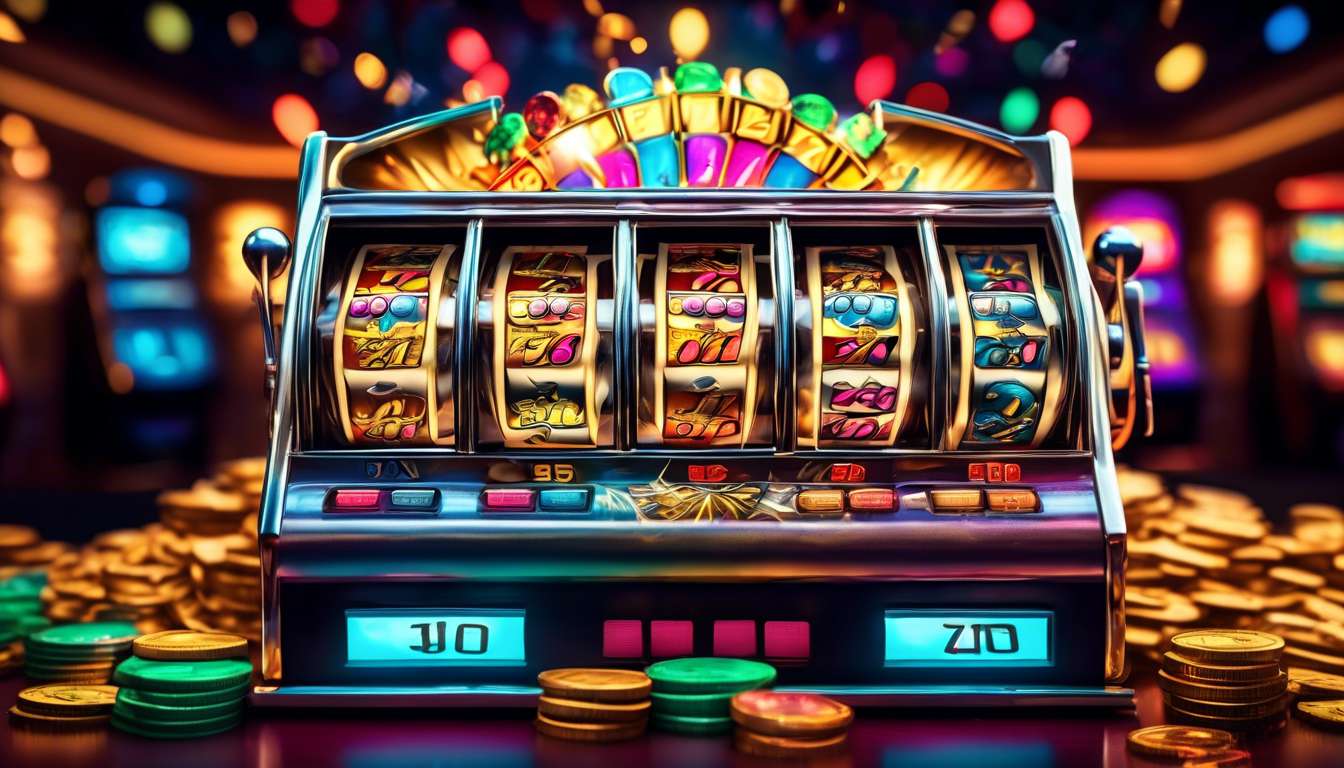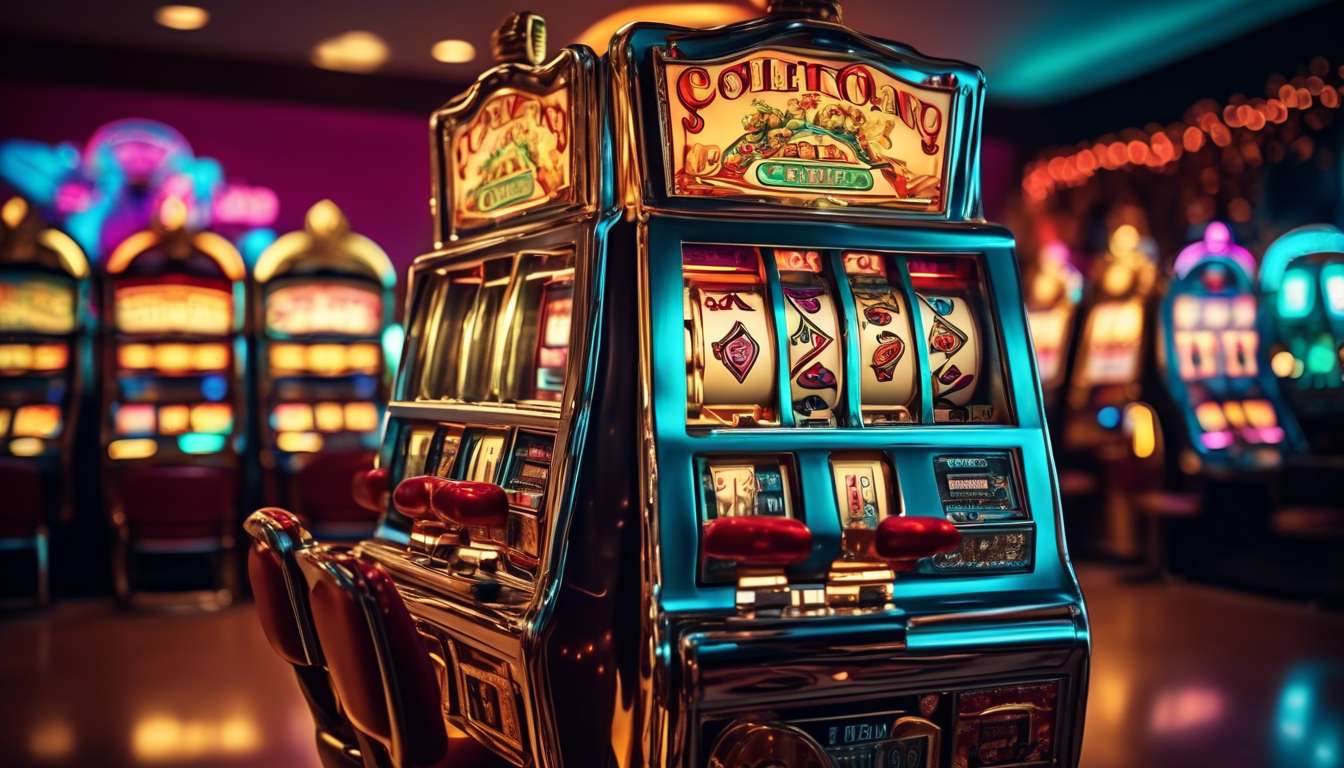As avid enthusiasts of the slot machine universe, we often find ourselves captivated by the swirling lights and the thrilling sounds of spinning reels. Together, we’ve delved into countless theories that claim to unlock the secrets of these mesmerizing machines. From timing rituals to strategic betting patterns, the allure of cracking the code keeps us spinning.
But do these popular slot theories really stand the test of scrutiny, or are they simply myths perpetuated by hopeful gamblers? In this exploration, we embark on a journey through six widely discussed slot theories, assessing their validity and uncovering the truths hidden behind the flashing facades.
As we navigate this intriguing landscape, we’ll separate fact from fiction, offering insights into whether these strategies hold any real potential to tilt the odds in our favor.
Let’s dive into the world of slots and see if we can unravel the mystery behind these captivating gambling theories.
The Hot and Cold Machine Theory
The Hot and Cold Machine Theory suggests that slot machines experience cycles of winning (hot) and losing (cold) streaks. As a community of gamblers, we often seek strategies that might give us an edge. This theory resonates with many because it offers a sense of understanding and control over the seemingly random outcomes of slot machines.
We might gather around a buzzing casino floor, sharing our experiences of machines suddenly turning hot, resulting in a string of wins. The theory captures our collective imagination, making us feel connected to the unpredictable world of gambling. It provides a framework for our shared stories and observations, as we try to decipher patterns in what is often attributed to random chance.
While it’s tempting to rely on this theory as a key gambling strategy, we must remember that:
- Each spin is independent.
- Slot machines are ultimately governed by complex algorithms designed to ensure randomness.
Conclusion: Although the Hot and Cold Machine Theory offers a compelling narrative, it’s crucial to approach gambling with the understanding that outcomes are primarily dictated by chance and not predictable patterns.
The Zigzag Pattern Strategy
Many gamblers believe in the Zigzag Pattern Strategy, thinking it can help identify winning slot machines by observing the symbols’ alignment across multiple screens. This strategy suggests that patterns in slot machines, such as a zigzag of matching symbols, might predict an imminent payout. The idea is that these visual cues hint at a machine that’s ready to hit.
However, we must remember that slot machines operate on random chance. Each spin is independent, driven by complex algorithms ensuring unpredictability. Casinos design these machines to be enticing, and patterns might appear purely by coincidence.
While the Zigzag Pattern Strategy brings us together in our shared quest to outsmart the system, it’s crucial to approach it with skepticism.
Let’s enjoy the camaraderie and thrill of the game, but not forget that luck, not patterns, rules the reels.
The Near Miss Hypothesis
Many of us have experienced the thrill of almost hitting a jackpot, a phenomenon known as the Near Miss Hypothesis. This suggests that these close calls can increase players’ motivation to keep spinning the reels.
In our shared pursuit of that elusive win, slot machines seem to toy with our emotions, drawing us in with the promise of victory just out of reach. This hypothesis proposes that near misses make us feel like we’re on the brink of success, encouraging us to continue playing, hoping the next spin will be the lucky one.
However, we must remember that slot machines operate on random chance. Despite our instinctual belief that we’re getting closer to winning, each spin is independent of the last.
Relying on near misses as a gambling strategy might give us a sense of camaraderie in shared experiences, but it doesn’t influence the machine’s outcome. As we gather around the slots, let’s keep in mind that luck, not strategy, governs these games.
The Money Management Approach
A smart money management approach can help us enjoy playing slots without losing control of our budget. Slot machines can be unpredictable due to the element of random chance, so having a solid plan ensures we stay in the game longer and maximize our fun. We all want to feel like we’re part of a savvy group of gamblers, and adopting effective gambling strategies is a step in the right direction.
First, setting a budget is crucial.
- Decide in advance how much you’re willing to spend.
- Stick to that budget.
This practice not only safeguards our finances but also enhances our sense of discipline. Additionally, it’s wise to choose slot machines that align with our budget, allowing us to play more rounds without exhausting our funds.
Another key strategy is to set win and loss limits.
- Celebrate your winnings and walk away with something to show for it.
- Know when to stop before losses pile up.
Let’s gamble responsibly together!
The Timing Ritual Speculation
Some players swear by timing rituals, believing that playing slots at specific times can enhance their chances of winning. We’ve all heard the whispers on the casino floor, haven’t we? Some claim that slot machines are more generous late at night or during shift changes. It’s a comforting thought to think we might outsmart these machines by showing up at just the right moment.
But let’s consider this: slot machines operate on random chance, governed by sophisticated algorithms designed to ensure fairness and unpredictability.
Despite these facts, timing rituals remain an alluring aspect of gambling strategies for many. They offer:
- A sense of control in an unpredictable environment
- A shared belief that unites players in the quest for that elusive jackpot
Isn’t it fascinating how these rituals create a sense of camaraderie among players? We find ourselves part of a community, all hoping to unlock the secrets of timing, even if it’s just an illusion.
The Location-Based Belief
Many players hold onto the belief that certain slot machines in specific locations within a casino are more likely to pay out. We’ve all heard the whispers in the casino halls:
- “That machine by the entrance is hot!”
- “The ones near the bar are looser!”
This location-based belief suggests that casinos strategically place “loose” slot machines in high-traffic areas to entice more people to play. As part of our shared gambling strategies, we often gravitate to these spots, hoping to catch a lucky break.
However, it’s essential to remember that slot machines operate on random chance, governed by random number generators (RNGs). Despite our collective hopes and strategies, the odds don’t actually improve based on a machine’s location.
Casinos design slot layouts for efficiency and aesthetics, not payout patterns. So, while it’s fun to speculate and share tips with fellow players, we should acknowledge that location doesn’t impact our odds — it’s all about luck and enjoying the experience together.
The Higher Denomination Assumption
Many players believe that higher denomination slots offer better payouts, enticing us to risk more for the chance of bigger wins. We gather around these enticing slot machines, feeling a sense of camaraderie as we share our gambling strategies.
The idea is simple: by wagering more, the potential rewards could be greater, drawing us into the thrill of the gamble. Yet, we must remember that slot machines operate on random chance, making it difficult to rely solely on this assumption for consistent success.
Our community often exchanges stories of big wins on higher denomination machines, fueling the belief that these are the way to go. However, while it’s true that these slots might offer higher payouts per spin, they also demand larger bets.
Considerations when playing higher denomination slots:
- They can quickly deplete our bankroll if luck isn’t on our side.
- Potential for big wins is alluring, but the risk is equally significant.
So, while we enjoy the allure of potential big wins, it’s crucial to approach these machines with a balanced understanding of risk and reward.
The Random Number Generator Myth
Many of us believe that there’s a way to outsmart the system, but the reality is that the Random Number Generator (RNG) ensures every spin is completely independent and unpredictable.
When we gather around slot machines, hoping for that big win, it’s comforting to think we can use gambling strategies to tip the odds in our favor. However, the RNG, a computer algorithm at the heart of each machine, randomly determines the outcome of every spin, making each one a unique event driven by random chance.
Embracing this truth can be liberating; it means we’re all on equal footing. No secret method or insider trick will alter the randomness of the next spin.
Instead, our focus should shift to:
- Enjoying the experience with friends
- Sharing in the thrill of the game
- Knowing that every spin holds the same opportunity for everyone
In this shared space, we find a sense of community, united by the unpredictability of our spins.
What are some common misconceptions about slot machine payout percentages?
When it comes to slot machine payout percentages, there are several misconceptions that can lead to confusion.
Independent Outcomes
Many people believe that previous outcomes somehow influence future payouts. In reality, each spin is independent and the machine’s odds remain constant.
Random Number Generators
It’s important to understand that slot machines operate on random number generators. This ensures fairness and impartiality in every game.
Key Factor: Luck
Remember, luck is the key factor in playing slots!
How do casinos determine their slot machine payout schedules?
Casinos determine their slot machine payout schedules based on a variety of factors:
- Game’s volatility
- Overall demand
- Desired profit margins
By analyzing player behavior and adjusting payouts accordingly, casinos aim to optimize their revenue while keeping players engaged.
These decisions are carefully made to create an enticing gaming experience that attracts and retains customers.
Ultimately, payout schedules are curated to strike a balance between player satisfaction and casino profitability.
Are there any psychological factors that influence player behavior at slot machines?
When it comes to slot machines, psychological factors play a significant role in influencing player behavior.
Sensory Stimulation:
- The flashing lights and sounds create a thrilling experience.
- These sensory elements are designed to captivate and engage players.
Anticipation and Excitement:
- The anticipation of a potential win keeps players coming back.
- This excitement contributes to the allure of slot machines.
Near-Misses:
- The concept of near-misses can lead players to believe a win is imminent.
- This belief encourages continued play, as players feel that a win is just around the corner.
These elements collectively contribute to the excitement and allure of slot machines.
Conclusion
In conclusion, while slot theories may add excitement to your gaming experience, remember that ultimately, slot machines are based on random chance.
Whether you believe in hot machines or near-miss patterns, it’s important to approach slots as a form of entertainment, not a guaranteed strategy for winning.
Embrace the unpredictability and enjoy the thrill of the game without relying too heavily on these popular theories.
Remember, luck is the true determining factor in your success at the slots.



